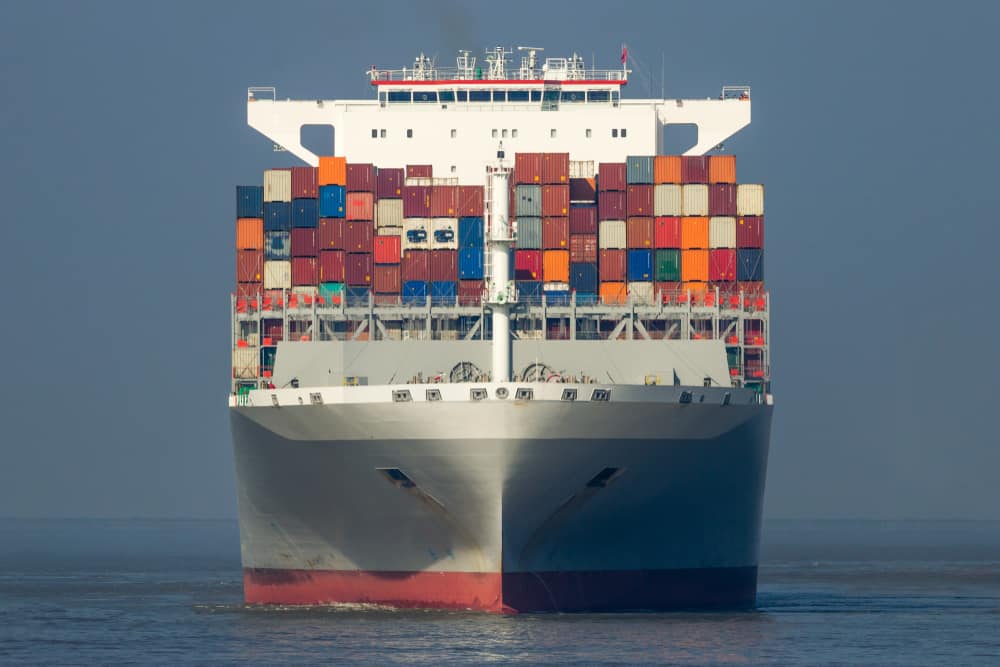In 2020, we have seen the dips and surges of the container shipping market.
While China and main Asian countries had been closing their plants back in March, the Western world has continued to consume. Later, this trend followed into Europe, next to North America and then South America. So, we see no supply in Asia, and when supply started there was no demand (in the U.S and EU.) Once we were in June, we started to see a spike in container volumes based on strong demand coming back. We need to understand this demand has been primarily in relation to the imbalance between supply and demand. In the U.S., the Inventory to Sales Ratio went up to 1.68 during May and then saw a free fall.

This was a real stress test for all importers/exporters’ supply chains, and its main providers – ocean carriers, freight forwarders, truckers, and warehouses. Ocean carriers have managed this process very well for themselves by managing supply through the alliances they had been forming since the last crisis.
Freight rates from Asia to the U.S. West Coast had increased by 120% (July 2019 vs. July 2020 comparison) significantly on a global scale. Space got super tight, and companies had to wait for weeks for their merchandise to be actually shipped out. Service levels from carriers had tumbled.

During this period, the importance of working with a freight forwarder has again re-proven itself. Here are the reasons why.
1. When companies work with a few ocean carriers, they limit their accessibility.
This is not realized when there is abundant space/equipment. However, once carriers decide with blank sailings or cut the allocation per each company, they basically leave customers in a void.
The COVID-19 era has been a clear indicator that carriers learn how to manage the supply. So, the blank sailings are here to stay. Companies will not have the same comforts of booking cargo on whichever date they prefer, whenever they want. They will need options, so they will have to increase their cooperation with freight forwarders if they want their cargo to be shipped at a competitive level and at times that they would prefer to ship. They will need to widen their perspective.
2. Carriers have been promoting technology – instead of human interaction – for years now.
The main idea is, and has been, doing the same amount of work with less people. So, carriers had been reducing the number of their employees domestically. The personal interactions both through sales and customer service people had been diminishing.
With COVID-19, this withdrawal will accelerate. Carriers have now experienced that they can technically operate by being completely remote from their customers. They can still move cargo when their customer service people send emails without names, are not accessible as much by phone, and have delays on their documentation turnaround times.
So, the companies who are looking for that simple one phone call access or interacting with same person that knows their expectations and challenges will only have the option of working with a freight forwarder rather than a carrier. The trend of carriers stepping away from customers will accelerate.
3. This year, companies once again experienced the power of committing into real partnerships with their supply chain providers.
When prices are going up by 30% to 40% every month, and when paying higher is not the solution most of the time, companies have the need for partners that present out of the box solutions, that will be flexible enough to turn things around from one day to another.
In a high-demand market, it is not enough to post a price or show a schedule on the internet. Companies need a well-balanced combination of technology with proactive people that understand their needs and present them with options before the questions are even asked. And, this need will push companies to the way of freight forwarders.
All this has been said, I believe that this is a natural pattern of the shipping industry.
We have too many moving parts with too many external factors affecting day-to-day business. And, with all that, freight forwarders are the masters of these puzzles with their exposure to all those pieces of the industry.





5
5
Comments are closed.